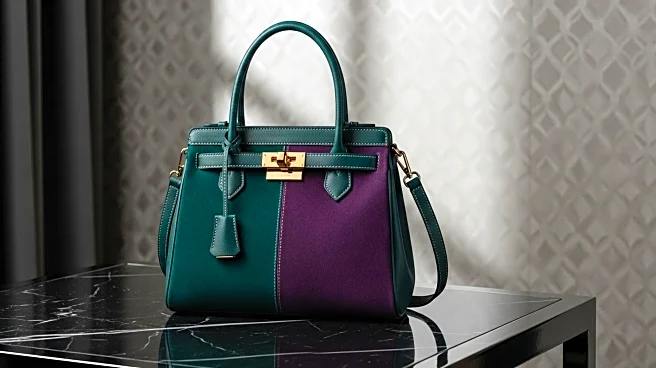What's Happening?
Hermès has successfully defended against an antitrust lawsuit in a California federal court, which alleged that the brand tied access to its Birkin and Kelly bags to the purchase of other products. The court dismissed the claims, stating that exclusivity strategies do not inherently violate antitrust laws unless they negatively impact competition. The plaintiffs argued that Hermès forced consumers to buy ancillary products to access its coveted handbags, but the court found no evidence of competitive harm. Judge James Donato emphasized that exclusivity and preferential treatment for high-spending customers are legally viable if they do not prevent rivals from competing.
Why It's Important?
The ruling is significant for luxury brands that rely on exclusivity to maintain their market position. It reinforces the legality of scarcity-driven strategies, which are crucial for brand identity and consumer demand in the luxury sector. The decision provides a legal framework for luxury brands to continue prioritizing loyal customers without fear of antitrust violations, as long as they do not suppress competition. This case sets a precedent that could influence how other luxury brands manage their exclusivity strategies, potentially impacting consumer access and brand loyalty.
Beyond the Headlines
The ruling highlights the delicate balance luxury brands must maintain between exclusivity and competition. While exclusivity can enhance brand prestige, it must be managed carefully to avoid potential legal challenges. The decision may encourage brands to refine their strategies, ensuring they do not inadvertently restrict market competition. It also underscores the importance of defining market power and competitive harm in antitrust cases, which can be complex in the luxury sector where brand influence and consumer perception play significant roles.









